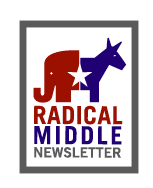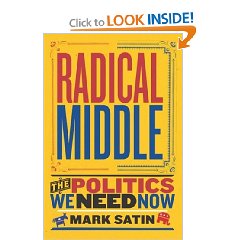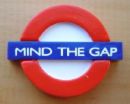I like this book very much. It is a cry from the heart–from a very informed heart–and it captures much that needs to be understood. It is not, however, the first effort in this direction. This book was published in 2004. Paul Ray and Sherry Ruth Anderson published “The Cultural Creatives: How 50 Million People are Changing the World” in 2000, coincident with the appearance of Marianne Williamson's extraordinary edited work, “IMAGINE: What American Could be in the 21st Century.” Ted Halstead and Michael Lind published “The Radical Center: The Future of American Politics,” in 2001. In 2002 Ralph Nader capped off decades of activism along these lines with “Crashing the Party: How to Tell the Truth and Run for President.” In 2003 we had Matthew Miller's “The 2% Solution: Fixing America's Problem in Ways Liberals and Conservatives Can Love.” See my reviews of all of those, and my list on democracy, to appreciate this book by this author, in a larger context.
The most important meme to come out to me–an aggressive iconoclast if ever there was one–dealt with the importance of turning away from rebellion for the sake of rebellion, and focusing instead of being a player, on bringing corporations to the table as Paul Hawken and others suggest in “Natural Capitalism” (which the author cites).
Early messages from this book include: Ignore the noise including Moore and Franken; Creative borrowing from all points of view to achieve public policy; Radical middle provides concrete answers instead of platitudes; Work with corporations instead of attacking them blindly; Idealism without the illusions. Four on key values: maximize choices, fair start for all, maximize human potential, help the developing world. The author then gives us four sections, with the highlights listed below.
Maximizing choices:
1) Universal health care that is also preventive and integrative
2) Law reform–affordable, meaningful
3) End oil dependency–parallel energies, seven paths (conservation, renewables, fossil fuels, hydrogen, nuclear, biobased, and values-change path
Fair start
1) great teachers (overlooks two-parent family, serious games, total change to curriculum)
2) affirmative action with teeth, not just letting in black-skinned white minds
3) Job for everyone and a financial next egg as well
Maximize human potential
1) corporations we can be proud of
2) biotech with adult supervision
3) bring back the draft–for EVERYONE (one of the best pieces)
Help the developed world
1) Globalization with savvy and feeling (address poverty, raise standards)
2) Make the WTO transparent
3) Humanitarian intervention in time–no more genocides (great piece)
4) Tough on terrorism and causes of terrorism
Be a player not a rebel
1) professional schools, not radical groups, are our incubators now (compassionate MDs, holistic MBAs, visionary JDs,
2) stay informed
3) join groups that matter and push them to the middle
4) run for office
5) open up the political process (free media, tax credits, proportional representation, instant run-offs, non-partisan redistricting,
Just this morning, a friend in Seattle sent me an email about a new meme that goes beyond the split between “for profit” and “non-profit” to speak of “new profit.” That is the distillation of what Paul Hawken and Herman Daly (“Ecological Economics”) are trying to capture. The old concept of corporate profit loots the commons. The new concept of profit, what I call Communal Capitalism, others call it Capitalism 3.0 or Natural Capitalism, understands that true profit must be perpetual and distributed.
This author has a following and is part of the solution. I recommend all the books I listed above, and this one.
See also:
A Power Governments Cannot Suppress
Society's Breakthrough!: Releasing Essential Wisdom and Virtue in All the People
The Two Percent Solution: Fixing America's Problems in Ways Liberals and Conservatives Can Love
The Radical Center: The Future of American Politics
The Cultural Creatives: How 50 Million People Are Changing the World




